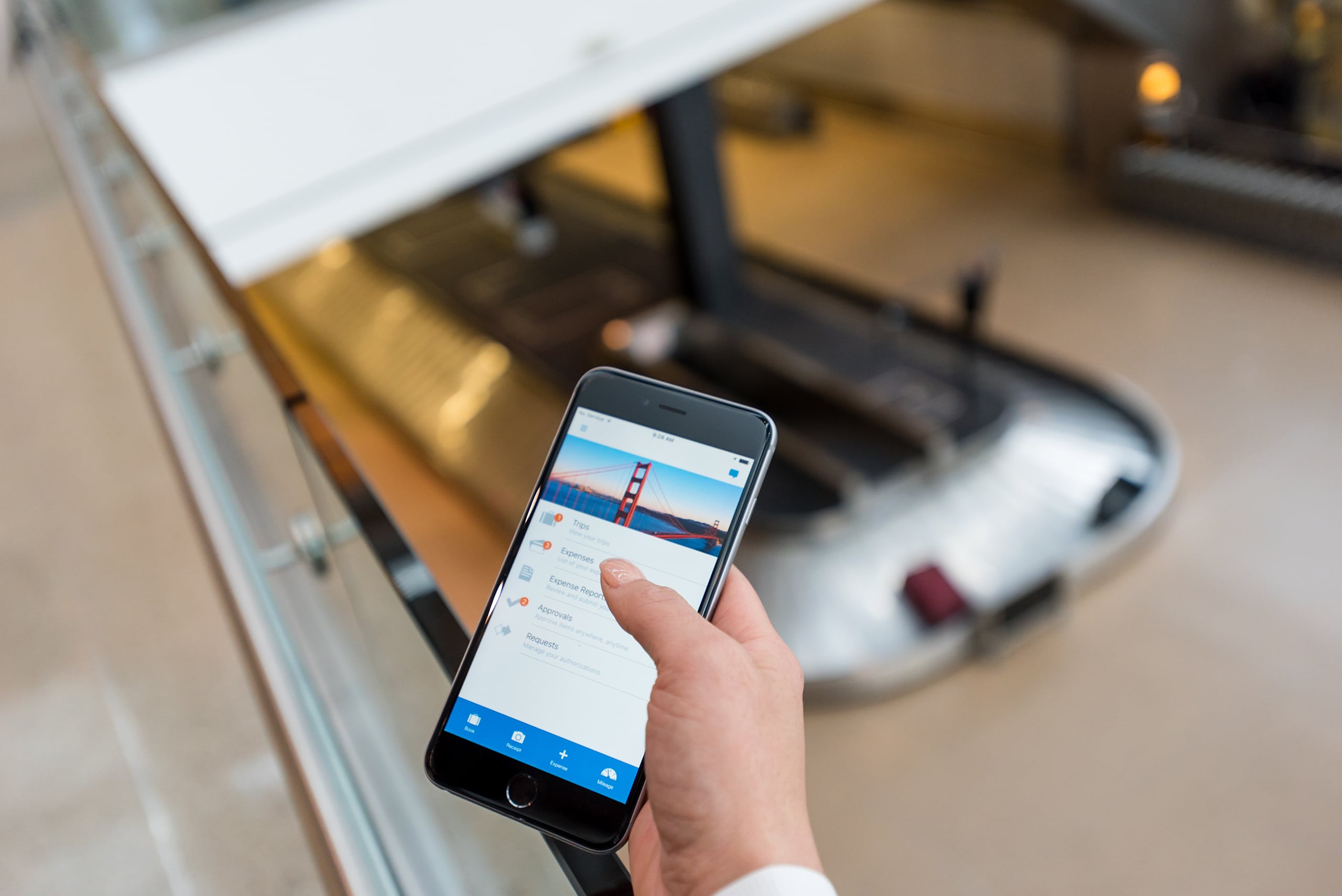New Ideas Will Emerge from Challenging Times: Our Predictions for 2021

After a difficult 2020, SAP Concur leaders are optimistic that the coming year will be one of innovation, recovery, and renewal. While 2021 is unlikely to look like any recent year in history, it may be remembered as one in which life slowly began to return to normal after one of the worst pandemics of the modern age.
In 2021, the global community will continue to see significant changes in nearly every sector. Here, our global team of experts once again shares perspectives and predictions for the new year. Some remind us that out of challenging times often come new ideas that can benefit the world well into the future.
Business travel will resume, responsibly
2021 will usher in the era of responsible travel. A coalition of players across the industry will increase work to regain the trust of customers, showing that travel can indeed be safe. They will begin to restart business travel in earnest in 2021. Those who must travel—members of the C-suite, salespeople, and essential workers—will remain as early adopters. Travel providers, including hotels, airlines, rail providers, ridesharing, and car rental services, may require travellers to disclose their COVID-19 health status until a vaccine is available and widely adopted. This could range from COVID-19 or antibody test results, including rapid testing right at the gate or rental car pick-up, to proof of vaccination once it is broadly available. Some businesses outside of the travel sector are already considering such policies. Mid-to-late in the year, the experiences of early adopters, measured by low infection rates, will then influence the broader base of travellers.
Businesses will raise the bar on health precautions. As border policies change with the rise and fall of regional COVID-19 case numbers, companies will require employees to comply with government guidelines, such as quarantine requirements before and after trips. More mainstream mask requirements are also a possibility, with travellers proving compliance through documentation throughout the trip that they have complied with mask mandates. These protocols will address what an SAP Concur study identified as global employees’ top concerns: infecting their families (55%) and getting sick themselves (53%) during a business trip. Our data also shows that an overwhelming 97% of ANZ business travellers consider some measures critical for safely returning to the road, especially personal health screenings, realtime travel risk updates, and limiting business travel to only business-critical trips. With travellers able to practice the health and safety habits they’ve adopted in their daily lives, business travel will feel more feasible.
Sustainability will be the table stakes. Health and safety isn’t the only form of responsible travel that will lure travellers back. New environmental research compels companies to use the temporary pause in travel to add new environmentally sustainable practices to their corporate travel programmes. For example, Microsoft’s purchase of sustainable aviation fuel to reduce pollution from commercial flights most frequented by its employees. These efforts will inspire the 69% of travellers who rank sustainability as important to them feel more comfortable and encouraged about returning to travel.
-Mike Koetting, Chief Product Strategy Officer, SAP Concur
AI at work will accelerate
The pace of digital change in business and society will sharply increase. Many companies were in the early and mid-stages of digital transformation when the pandemic struck. They pivoted and sped up that transformation to address unprecedented global disruption and customer needs, and now they will be expected to continue operating within this new context.
Automation will become essential, not extra. As businesses maintain hybrid remote-working models and anticipate other potential disruptions in 2021 and beyond, the role of automation and AI use cases in the workplace will grow. These may include enabling efficient day-to-day communications between knowledge workers doing their jobs from home and automating invoicing and expenses to keep valued partners paid and to preserve budgets. We will also see more businesses leaning on AI algorithms to make quick decisions backed by real-time financial transparency in order to meet the business needs brought on by the pandemic. This includes managing spending in near real-time to improve budget management and liquidity, increasing compliance and eliminating errors, and maximising profitability.
The broader use of AI and ML to add intelligence to applications and eliminate manual processes also gives firms a much-needed competitive boost by improving their productivity. A recent SAP Concur-commissioned study, for instance, found that as much as 38% of employees in the Asia Pacific region submit expenses manually by filling out a form and enclosing physical receipts. Firms can save tens or even hundreds of thousands of pounds each year − and improve staff satisfaction − by automating their finance and administration processes.
-Andy Watson, SVP & General Manager for Asia Pacific Japan and Greater China, SAP Concur
Small businesses will seize the moment
With U.S federal financial relief in flux, and Australian JobKeeper Payments expected to cease at the end of March, small businesses will keep chipping away at the costs of doing business. The distribution of vaccines cannot come soon enough, as many small to mid-sized businesses are fighting to survive the economic effects of the pandemic. Continued trimming of operational costs and limiting non-essential spend will help. But barring access to a vaccine, unfortunately, it won’t be enough for some. Others will get some breathing room and many of them will have something in common: the ability to create and support demand underpinned by investments in cost-saving, business-enabling technology solutions. These solutions will automate and digitise processes that are essential to running their businesses under tightened budgets. Leaders will also explore renegotiating terms on their loans and recurring payments to preserve cash, especially at the start of the year. Small businesses will also be on the hunt for suppliers and partners that can withstand economic uncertainty and extend value beyond their traditional services, such as lower-interest credit card offers from their preferred banking institution. These steps will help small businesses minimise cash flow disruption as they manage lingering uncertainty in the market. That said, governments and large enterprises may still step up to support SMBs, as economies depend on small businesses for jobs and economic activity.
New ventures, and ways of doing business, will mix things up in the marketplace. Many small businesses have permanently closed due to the economic fallout of COVID-19. At the same time, the pandemic has created a new context for commerce—gaps in the marketplace have created opportunities for new business. Spikes in new business applications indicate more entrepreneurs will explore microservices and “side hustles” to meet emerging product and service demands. As new companies enter the fold, their leaders will leverage digital solutions and hybrid business models to fast-track growth and resiliency in a disrupted market. We will see more small businesses embrace digital commerce, changing the point of sale and/or moving from physical to online sales completely or in part. This will create new options for people to “shop locally” to support small businesses and enable small businesses to fill gaps in crucial supply chains.
-Val Blatt, General Manager, Global Small to Medium-sized Business Division, SAP Concur
Diversity, equity, and inclusion progress will take a village
It’s been a whirlwind for workplace culture in 2020. The pandemic has led to a decline in employees’ mental health and increased worldwide unemployment—including a great number of women leaving the workforce. These circumstances have set back many companies’ diversity and inclusion initiatives, creating more unease for employees.
2021 will bring a new wave of policy makeovers beyond HR. More representatives across the organisation will get involved. Finance leaders will do their part to inform the business case for diverse hires and avoid the financial repercussions of turnover, which was an estimated US$223 billion in 2019. These companywide cultural shifts will also include travel departments that are under more pressure than ever to ensure the health and safety of travelling employees—for good reason. SAP Concur research identified safety and harassment issues for women and LGBTQ travellers, and the potential for travellers of Asian descent to face discrimination as business travel resumes. We can expect some legacy travel policies, like prioritising lowest logical fares, will shift to address more safety and employee-centric measures in 2021 and beyond.
-Amy Padgett, Sr. Director, Product Strategy Communications, SAP Concur
Consumer travel will look different
Longer stays are here to stay. From changing quarantine policies to a newly expanded meaning of WFhH (work from holiday home, anyone?), quick trips are no longer accessible to consumer travellers in the way they were pre-COVID. TripIt data show an increase in trip duration—spanning flight, lodging, and car rentals— indicating that travellers are planning trips with intention. And without the physical confines of work or school, longer stays at short-term rentals will continue to be a popular choice for business and leisure travellers alike.
Sustainable sustainability. The pandemic has effectively hit the pause button on emissions, which are projected to be eight percent less in 2020 than they were in 2019. Travellers are increasingly demanding any recovery in travel to be rebuilt sustainably, from more effective seating layouts to low-carbon sustainable aviation fuel. In 2021, look for consumer travellers to spend more time at their destinations; utilise paperless boarding pass and itinerary solutions; dine at restaurants that offer locally sourced food; and stay in hotels that are more eco-friendly, boasting everything from refillable toiletries to water conservation as an amenity. Expect consumers to increasingly look for solutions that track and offset emissions easily.
Digital health passports and travel corridors will become mainstream. Travel corridors will become more prevalent in 2021, especially in the spring. Vaccines are coming, which will increase traveller, travel supplier, and government confidence globally, although it is unclear how long disbursement will take and it is likely there will be global inequities in the speed in which the vaccine is rolled out. Travelling from highly vaccinated countries to less-vaccinated countries could therefore be problematic. Rapid testing is expected to become more accurate and prevalent, allowing travel and the hospitality industry to continue to reopen. Digital health passports, displaying a traveller’s vaccine or negative test status, along with travel corridors, will emerge as we transition to a new normal in global travel.
-Fiona Ashley, VP Product & Solution Marketing, SAP Concur
